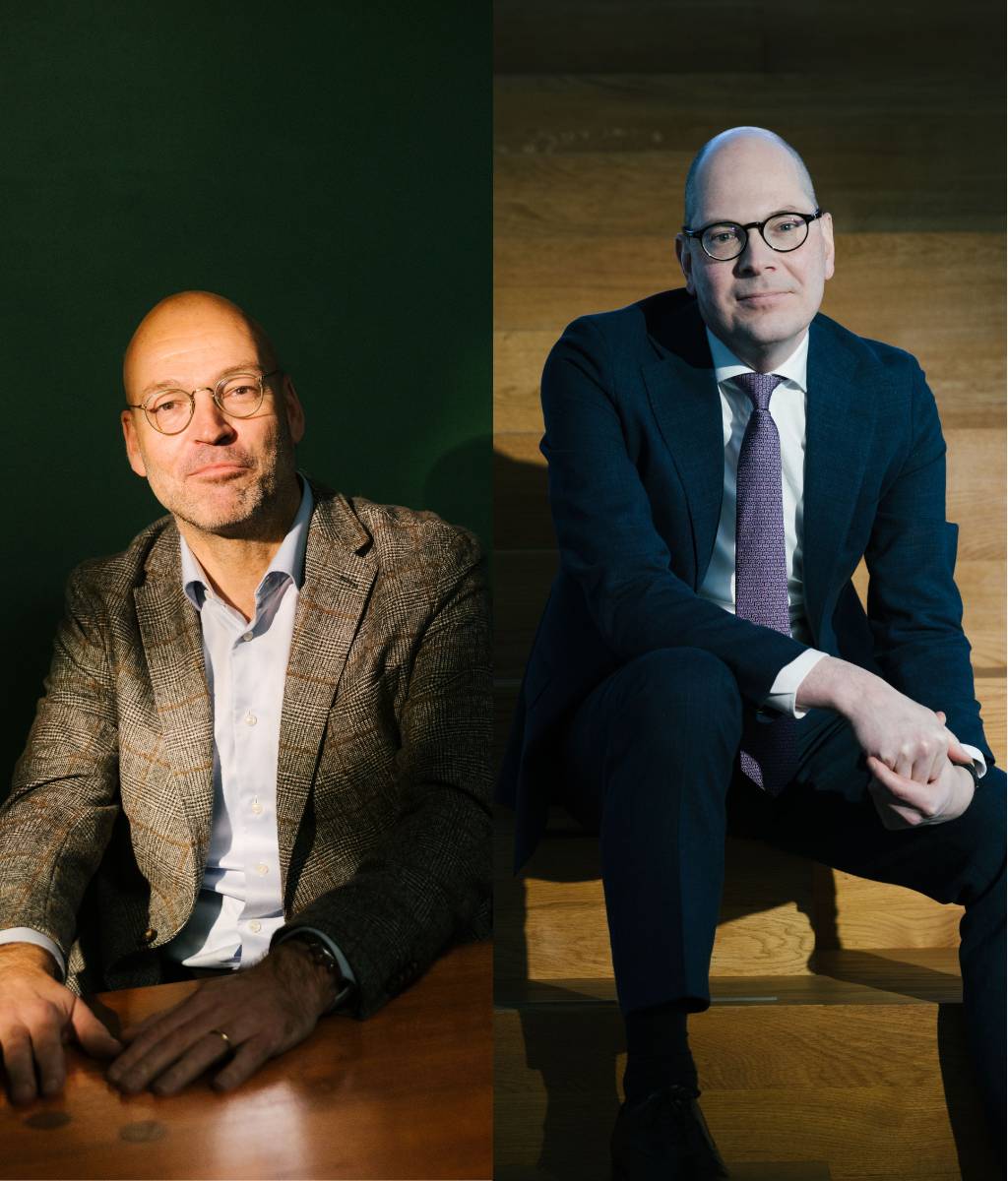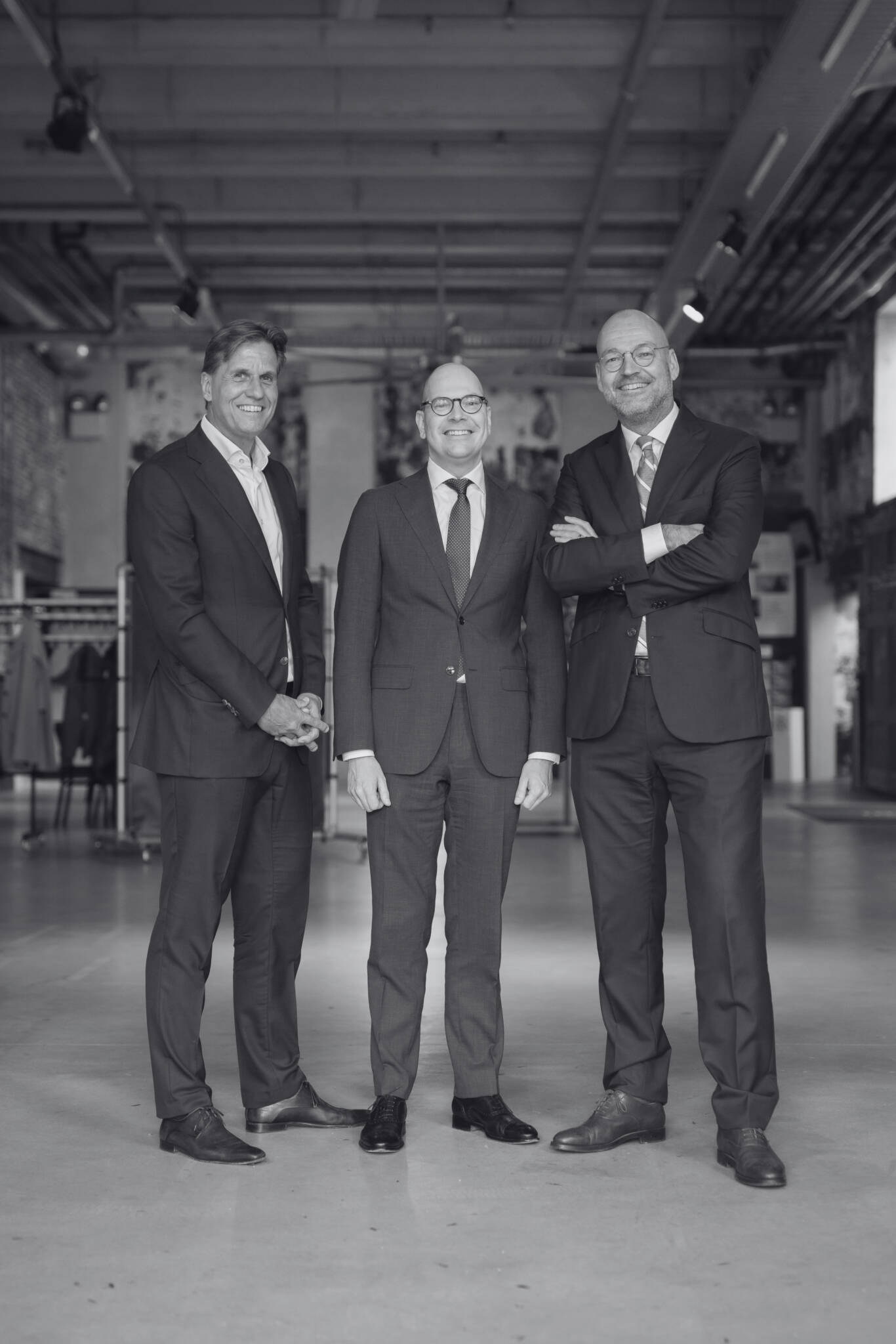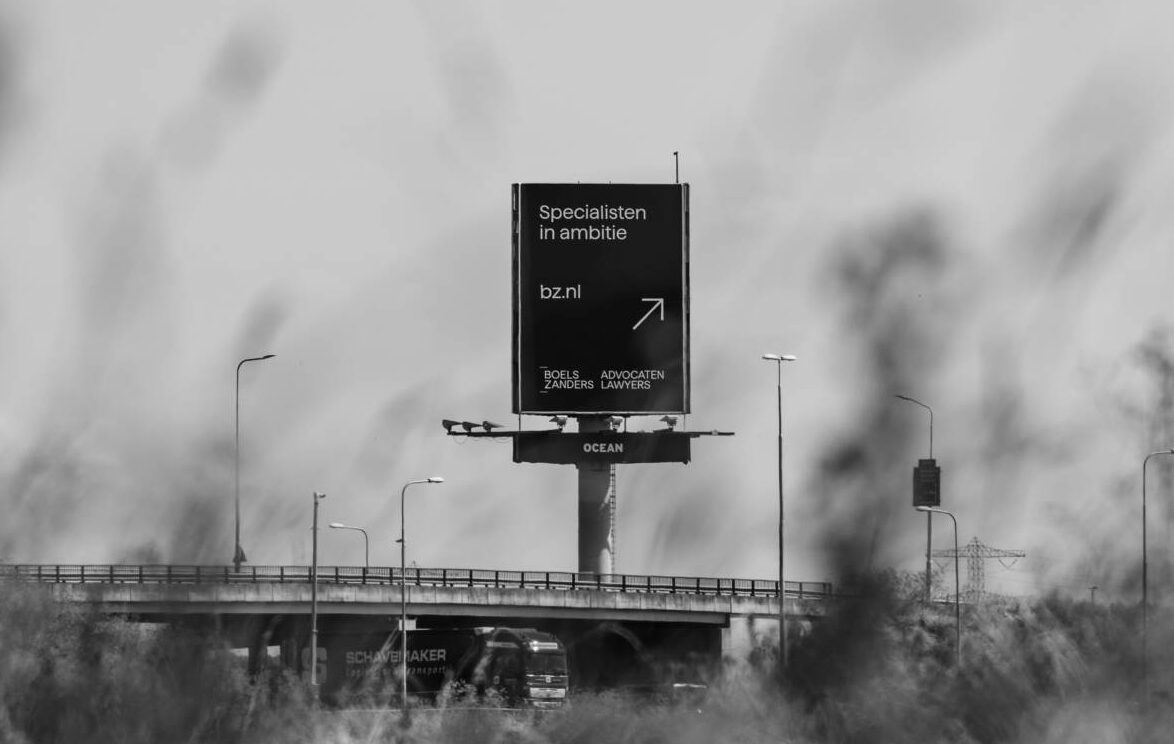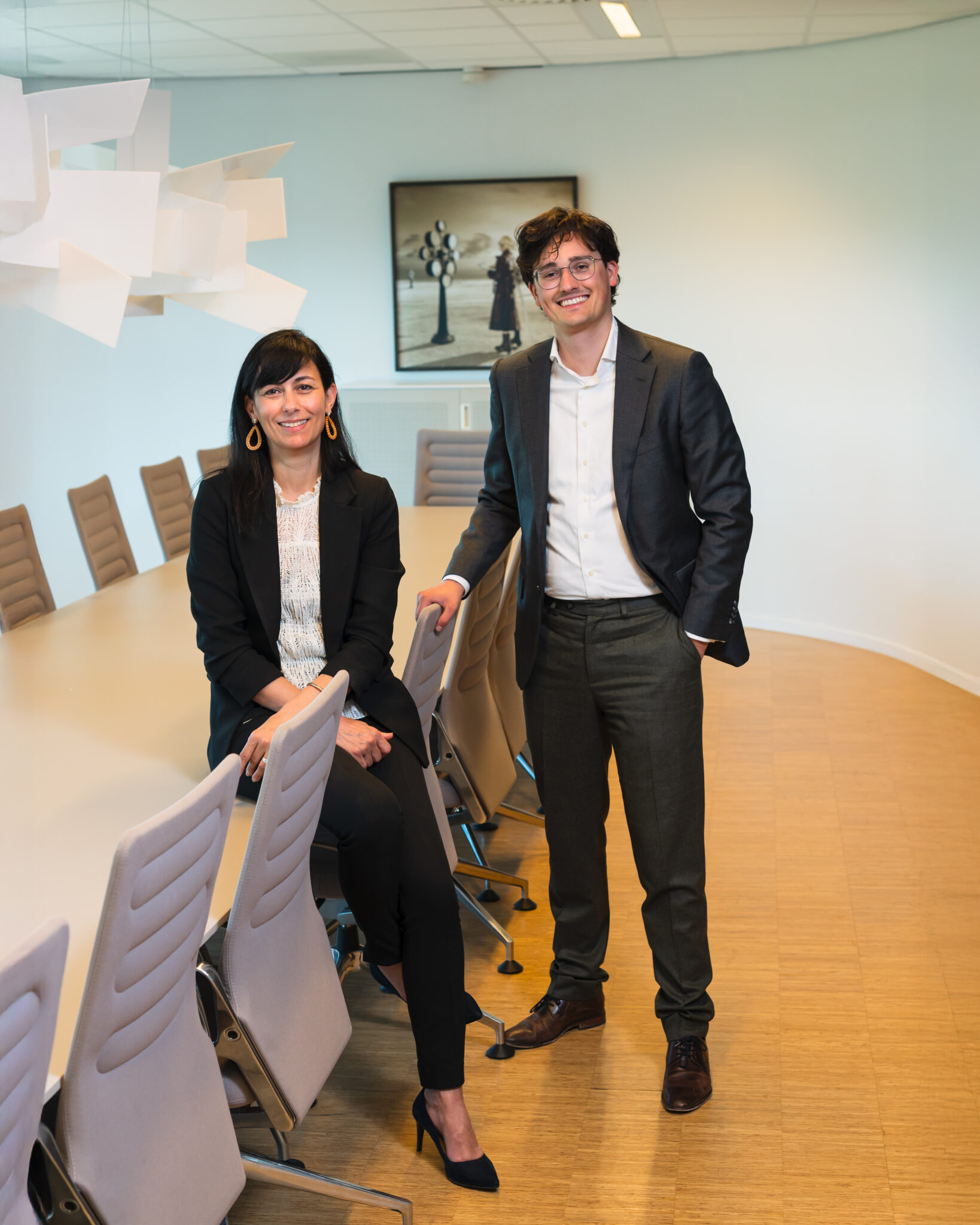Why did you prioritize sharpening your positioning?
Remco: “If you don’t know who you are, you can’t effectively convey what you stand for.”
Harm: “The existing communication strategy had run its course and no longer inspired energy. We wanted to move forward. The Voorstanders story and the new visual identity give the organization confidence and positive energy. This also resonates with clients. It reflects who we are.”
“The Voorstanders story and the new visual identity give the organization confidence and positive energy.”
What does it take to be a good leader?
Harm: “You need to be composed and willing to make decisions – even the tough ones. It’s essential to keep an open mind, be empathetic, and have strong commercial skills.”
Remco: “I’ve been fortunate to work with Harm – as a person, colleague, and co-leader. We share the same moral compass. I don’t believe in a one-size-fits-all approach. Different times call for different qualities. That’s why it’s good that a new executive board is stepping in. Xander and Jeroen have both earned their stripes within the organization and have the trust of both the Works Council and shareholders.”
“We share the same moral compass. Different times call for different qualities.”
How would you describe your working style?
Remco: “I’ve always pursued efficiency and asked myself at every turn: Where am I, where do I need to go, and how do I get there? Do what’s necessary, skip what isn’t. That defines my working style, both as a lawyer and a leader.”
Harm: “Harmonious collaboration and quick decision-making. We always carefully considered our decisions but never postponed them unnecessarily. We didn’t shy away from making tough calls.”
How did you balance leadership with your work as a lawyer?
Harm: “It’s hard work. That’s why I made it a point to take breaks regularly and plan – and respect – vacations in advance.”
Remco: “This is a painful question for me because I found it the hardest part. I was determined to stay 70% active in practice. Being a lawyer is what keeps me going. I managed, but it felt like elite sports. This dual role isn’t for everyone – you have to be suited for the effort it demands.”
What achievement from the past few years are you most proud of?
Remco: “That we, as a collective, managed to understand and articulate who we are without losing individual diversity. I’m also proud that I consistently prioritized the collective interest.”
Harm: “That we’ve been able to help hundreds of clients in this demanding and changing market. That’s a credit to all our colleagues. I’m also proud of my personal growth. While I naturally tend to avoid conflict, I’ve had to intervene at critical moments by confronting issues head-on.”
What new insights and skills are you taking back to your practice?
Harm: “I’ve gained even more understanding of people. After COVID, not much can throw me off balance.”
Remco: “I agree. I’ve especially developed soft skills – learning to ask questions and put myself in others’ shoes before proposing solutions.”
Where do you see the biggest challenge in your field right now?
Harm: “We need to continue delving into new technologies, such as AI, within the legal profession. But I see an even greater challenge in the unpredictability of our political landscape. Legislation is being drafted faster and with less consideration, which we experience in practice. I’m also genuinely concerned about social norms. In our polarized society, people are increasingly convinced of their own views and find it difficult to listen to each other.”
Remco: “I agree. From my perspective: crises are piling up – geopolitically, environmentally, and socially. This affects our economy and the viability of organizations. More than ever, it calls for tailored solutions from specialists – people who not only excel legally but also understand the broader economic landscape.”




